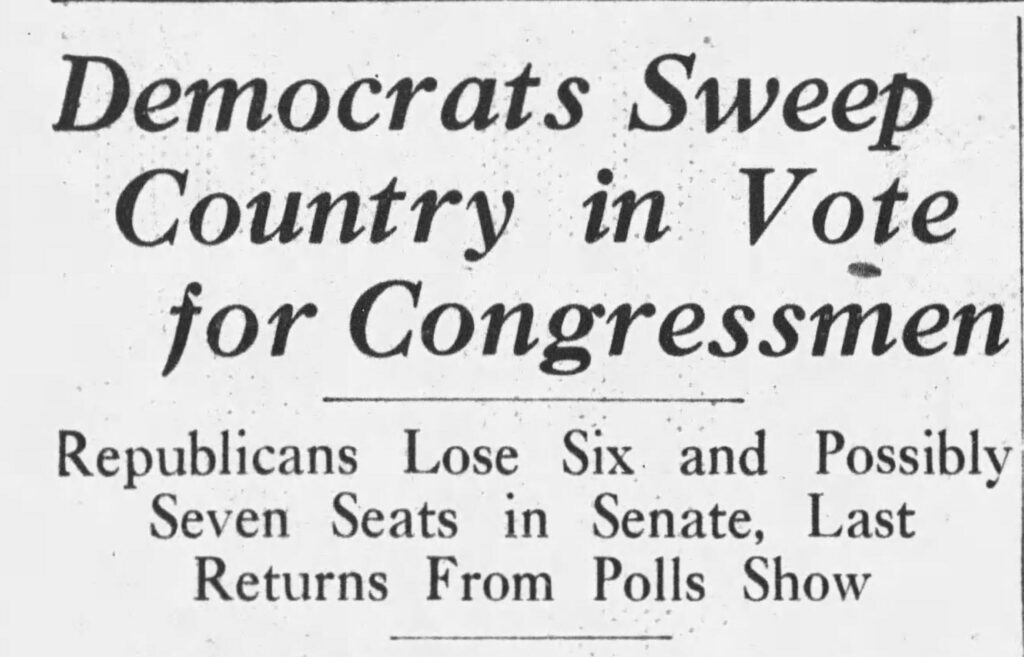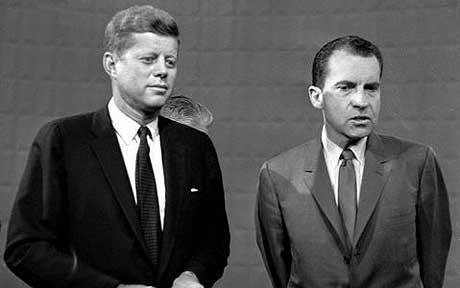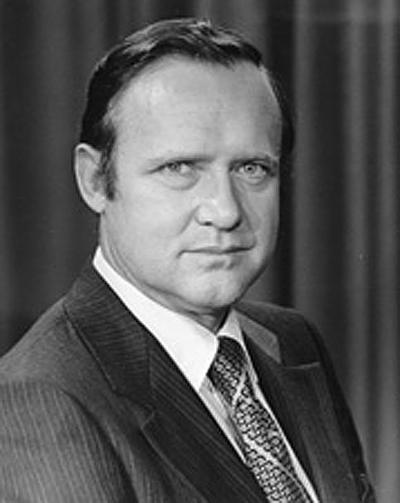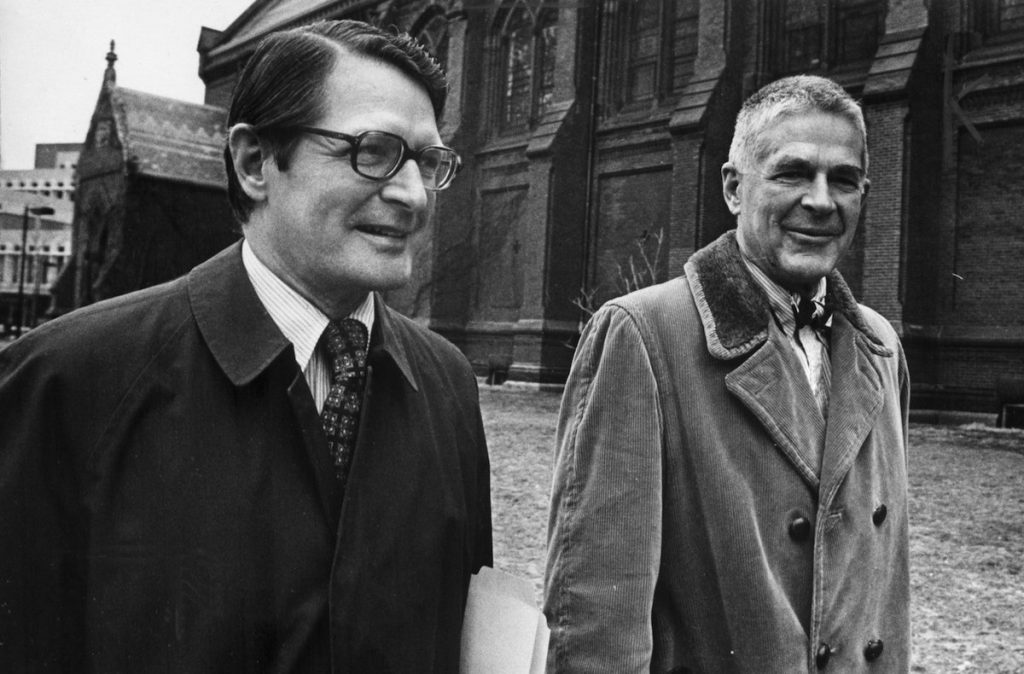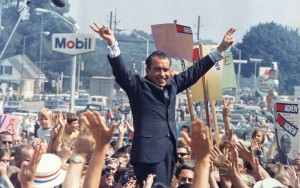If you enjoy a little irony to compliment your summer this has been a week for you.
Irony one: on the day the United States Supreme Court dramatically realigned our historic understanding that “no man is above the law,” granting every former president “absolute immunity” for acts committed in their official capacity, former Donald Trump advisor Steve Bannon reported to jail for refusing to provide information to Congress about the failed Trump coup attempt on January 6, 2021.

Bannon, whose reason to be centers on dismantling the “administrative state,” is a world-class grifter who stands to enlarge his toxic influence in a second Trump administration. Bannon has no more cause to be near the presidency than does the man he worked for, but while he is paying a (small) price – four months in a minimum security prison – the instigator of the coup, thanks to the Supreme Court, will likely never face any consequence for one of the most heinous acts in the long history of the Republic.
If Trump makes it back to the presidency – an increasingly likely outcome – he will never face a jury for trying to overturn an election or any of his other crimes, while the flabby mouthpiece of white nationalism and a proponent of the January 6 insurrection goes to jail, not for cheerleading the riot but for refusing to talk to Congress about cheerleading the riot.
Another irony: While Americans celebrate the nation’s independence this week, a movement initiated 248 years ago against a mentally unstable English king, the Supreme Court has effectively put the once and future crimes of an American president out of reach of the vaunted “rule of law.”
A certifiably crazy former president is now set to be a certifiably crazy king.
As Justice Sonia Sotomayor wrote in dissent against the Court’s gobsmackingly outrageous decision – “immune, immune, immune, immune.”
“We are the United State of Amnesia,” the novelist Gore Vidal once wrote, “we learn nothing because we remember nothing.”
Remembering nothing, for instance, like Richard Nixon. Fifty years after Nixon resigned the presidency under a cloud of crimes associated with the Watergate caper that the Supreme Court has now decided that was no big deal. Nixon acted as president when he authorized the CIA to concoct a cover story for the break in at the offices of the Democratic National Committee in 1972. He was acting in his official capacity when he ordered the break in of the doctor’s office where the medical records of the leaker of the Pentagon Papers were housed. Nixon was acting officially when he order hush money payments to keep witnesses quiet.
“As I looked at it, I realized Richard Nixon would have had a pass,” said no less an authority than John Dean, the White House counsel who helped reveal the extent of Nixon’s crimes.
“Virtually all of his Watergate-related conduct,” Dean said and, “virtually all that evidence falls in what could easily be described as ‘official conduct.’”
And here’s law professor Jeffrey Toobin writing in the Washington Post: “The strongest evidence that Nixon obstructed justice in the Watergate investigation was the so-called smoking gun tape of June 23, 1972. In that conversation, Nixon told H.R. Haldeman, his chief of staff, to instruct the CIA to tell the FBI to curtail its investigation of the Watergate break-in on spurious national security grounds. Nixon told Haldeman: ‘When you get … these people in, say, ‘Look, the problem is that this will open the whole, the whole Bay of Pigs thing. … That will uncover a lot of things. You open that scab there’s a hell of a lot of things and that we just feel that it would be very detrimental to have this thing go any further.
“Under Trump v. United States, Nixon’s statement would not amount to obstruction of justice because it related to his ‘official’ duties — that is, supervising the FBI and CIA. ‘Investigative and prosecutorial decision-making is ‘the special province of the Executive Branch,’ Roberts wrote, ‘and the Constitution vests the entirety of the executive power in the President.’ Accordingly, ‘the President cannot be prosecuted for conduct within his exclusive constitutional authority.'”
Nixon, of course, accepted a pardon from President Gerald Ford for the simple reason that he knew he faced prosecution for the crimes he committed and abetted. Now, the Supreme Court says forget it. Turns out Nixon was right when, after his resignation, he infamously told interviewer David Frost, “when the president does it, that means it is not illegal.”

Toobin argues that the evidence of Nixon’s obstruction, the “smoking gun” audio recording, could not, under Roberts anti-constitutional reading be used as evidence. That’s right. Read it again.
“What the prosecutor may not do, however,” Roberts wrote based on nothing more than his own ideology and aiming for his desired outcome, “is admit testimony or private records of the President or his advisers probing the official act itself. Allowing that sort of evidence would invite the jury to inspect the President’s motivations for his official actions and to second-guess their propriety.”
The ultimate Trump card delivered by not a conservative Supreme Court, but a radical and reactionary court with a majority more activist than judicial, more driven by its desire for a political outcome than by fidelity to the Constitution.
But it that this American way? Do we really want to encourage an already overly powerful president to have the ability to commit crimes in his official capacity and be held immune for his actions? Is this the way our 248 year experiment in checked and balanced government ends?
To see where this is going read the dissents to Chief Justice John Roberts’ outrageous opinion for the court, an entirely ahistorical document that would almost certainly make even the old Watergate defendant squirm.
“Never in the history of our Republic has a President had reason to believe that he would be immune from criminal prosecution if he used the trappings of his office to violate the criminal law,” Justice Sotomayor wrote. “Moving forward, however, all former Presidents will be cloaked in such immunity. If the occupant of that office misuses official power for personal gain, the criminal law that the rest of us must abide will not provide a backstop.”
Sotomayor ended with this: “With fear for our democracy, I dissent.”
Roberts dismissed such concerns with the high handed authoritarian impulse he has now effectively amended the Constitution to permit. He argues that a president, shielded now with immunity granted by six unelected judges, has the power to be “bold.”
Was Nixon being “bold” when he initiated the coverup of his crimes, all done, by the way, to further his own political prospects and to punish his political enemies?
Unlike Roberts, Justice Ketanji Brown Jackson has read history. In her dissent Jackson quotes the great Supreme Court Justice Louis Brandeis and in the process demolishes the claim that the Constitution encourages an all-powerful executive.
The Constitution’s “separation of powers was adopted by the Convention of 1787,” Brandeis wrote in 1926, “not to promote efficiency but to preclude the exercise of arbitrary power. The purpose was, not to avoid friction, but . . . to save the people from autocracy.”
Final irony: a former president with autocratic ambitions – Trump took to social media this week to assert, that is to lie, that former Congresswoman Liz Cheney had committed “treason” for investigating his coup activities – has had those ambitions supercharged by the authority of the nation’s highest court.
In short, the Supreme Court majority – three of them appointed by Trump – has vastly increased the likelihood that should he gain office again Trump will rule like the “dictator” he has pledged to become.
Joe Biden had an awful debate last week. He’s too old to be president. He should stand down. Trump’s court has emboldened his desire for absolute power and his lust for revenge against his opponents. What a choice.
We can have a dime store Nixon with a third the mental capacity of that corrupt former president and ten times the venality, or we can have a diminished man whose entire career supports the American ideals the Supreme Court has now kicked in the ditch.
With fear for our democracy, I despair.
—–0—–
Additional Reading:
A couple of other items of interest …
We may not have kings in America, but we now have ‘official acts’
Montana journalist Darrell Ehrlick captures my own mood of despair with this telling essay.
“The Fourth of July has always been a happy occasion to celebrate the inspired ideals that have set us apart, not because we were able to reach the lofty concepts given to us by our founders, but because they continue to call us to be something exceptional.
“But today, we have the man who wrote ‘Proud to Be An American’ hawking cheap Bibles along with a convicted rapist who talks openly about becoming a dictator on Day One of a presidency and taking revenge on his enemies, and a Supreme Court who says a president is above the law just by uttering a magical incantation of ‘official act.'”
The piece won’t make you feel any better, but it’s heartfelt and honest.
Small cities in US Rust belt are leading an urban transformation charge
Something here at least a bit uplifting.
“At a time when some major US cities are grappling with business closures and high rents, a number of small, post-industrial cities in the midwest are experiencing a boom centered on their downtown cores.
“In Lansing, Michigan, another former industrial hub that’s lost tens of thousands of residents since its mid-20th century heyday, local and state authorities plan to invest more than a quarter-billion dollars on housing, a music and arts center and other community projects.
“Similar experiences are playing out in Dayton, Ohio; Charleston, West Virginia; and other smaller, once-struggling manufacturing towns.”
From The Guardian.
That’s all I got this week. Stay safe … and cool if you can.

